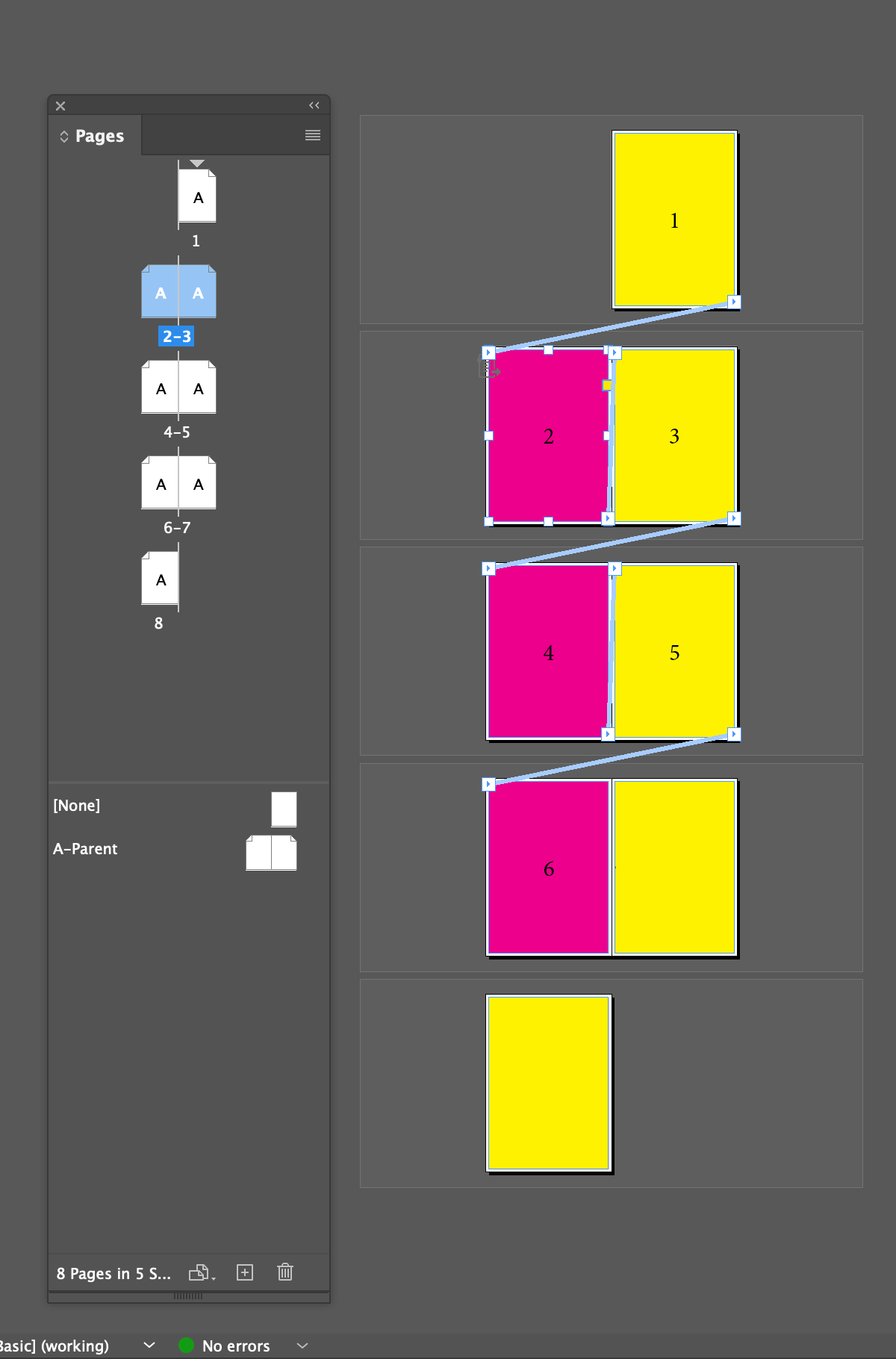Hi @lfcorullon13651490, yes it could definitely be easier. But here is some code that works, at least in the basic case. Let me know if it is what you were thinking.
- Mark
/**
* @file Split Spread.js
* Split a double facing-page spread into two spreads, preserving sided-ness.
*
* CAUTION: not tested beyond the basic case!
*
* @author m1b
* @discussion https://community.adobe.com/t5/indesign-discussions/script-split-spread-of-2-pages-into-2-spreads-of-1-page/m-p/14729224
*/
function main() {
splitDoublePageSpread(app.activeDocument.layoutWindows[0].activeSpread);
};
app.doScript(main, ScriptLanguage.JAVASCRIPT, undefined, UndoModes.ENTIRE_SCRIPT, 'Split Spread');
/**
* Split a double facing-page spread
* into two spreads, preserving sided-ness.
* @author m1b
* @version 2024-07-10
* @param {Spread} spread - an Indesign Spread.
*/
function splitDoublePageSpread(spread) {
if (
'Spread' !== spread.constructor.name
|| !spread.isValid
)
throw Error('splitDoublePageSpread: bad `spread` supplied.');
if (2 !== spread.pages.length)
throw Error('splitDoublePageSpread: expected 2 pages per spread.');
// the right-hand page
var page = spread.pages.lastItem();
spread.allowPageShuffle = false;
// add the new spread (note: it will also add two unwanted pages)
var newSpread = spread.parent.spreads.add(LocationOptions.AFTER, spread, { allowPageShuffle: false });
// slot the page in between the two unwanted pages
page.move(LocationOptions.AFTER, newSpread.pages.firstItem());
// remove the unwanted pages
newSpread.pages.lastItem().remove();
newSpread.pages.firstItem().remove();
};



